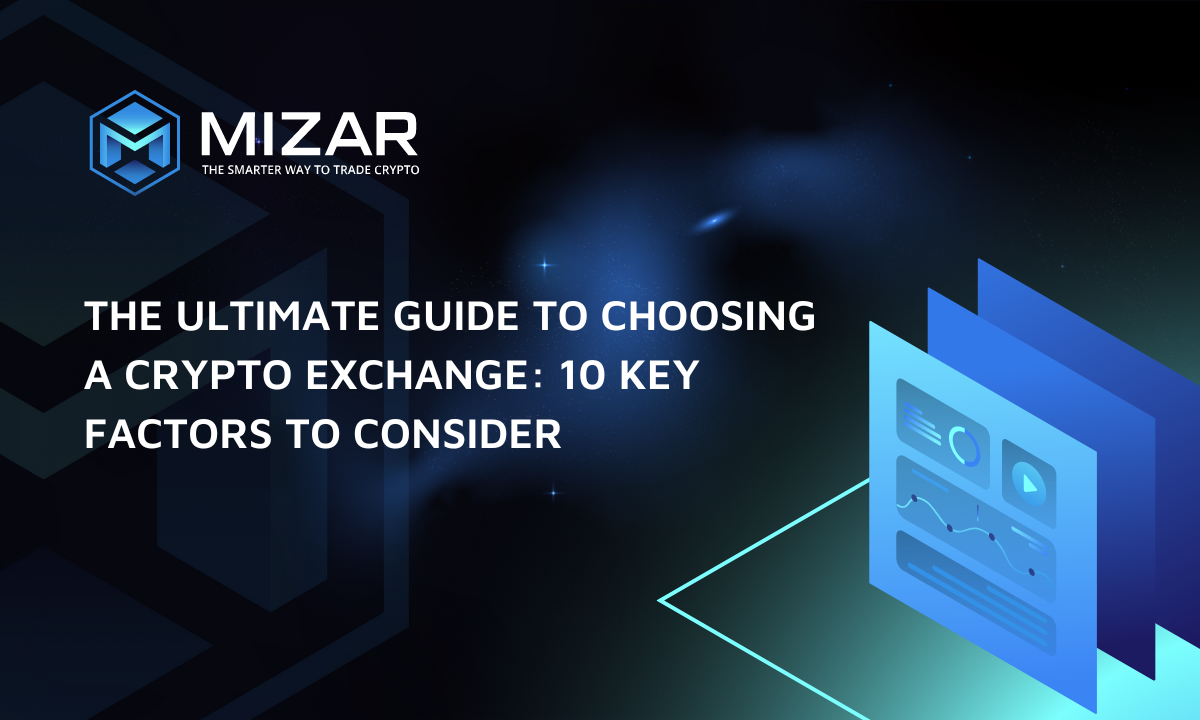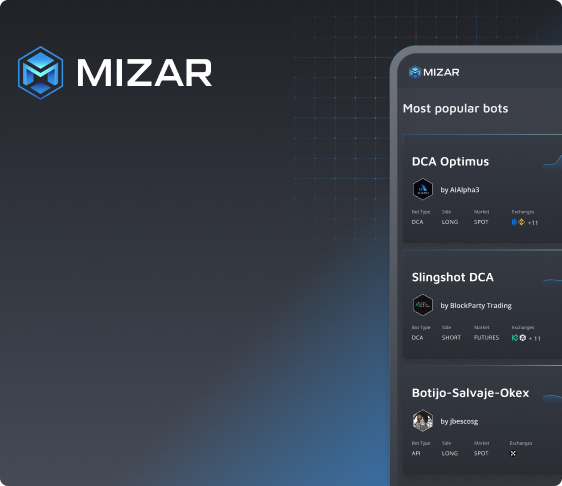10 Key Factors To Consider Before Choosing A Cryptocurrency Exchange

The global crypto population has increased by 178% in 2021, rising from 106 million to 295 million, making crypto and bitcoin the talk of the town along with the emergence of NFTs, DeFi Protocols, and DAOs. Yet trading crypto is still a little tricky.
That’s why we have crypto exchanges, which act as intermediaries or middlemen, storing crypto assets on your behalf and connecting you with other buyers and sellers, allowing you to trade cryptocurrency with ease.
But with so many options around you, it might be a little complicated to choose one. Here’s what you should consider before you pick the right one:
Security
Crypto is secured by the blockchain, but that doesn’t mean crypto exchanges aren't vulnerable to hacks. As recently as November 2022, FTX was exploited, and hackers were able to steal over $550 million worth of assets.
The FTX hack was possible due to weak backend infrastructure, and most of the assets were not stored in cold wallets. Taking this example, it is common sense and a wise decision to avoid putting money into a crypto exchange with a significant history of cyberattacks and a lack of security measures.
It should also be noted that, as a user, you are also responsible for your account's security. Make sure to turn on 2FA to add an additional layer of protection, change passwords frequently, and move crypto to a cold wallet when you plan to HODL for a long time period.
Binance is one of the most secure exchanges, followed by Coinbase Pro, OKX, KuCoin, Crypto.com, Huobi, and MEXC.
Proof Of Reserves
The FTX meltdown gave birth to the “Proof-of-Reserve” concept, which was further emphasized by CZ, the CEO of Binance, highlighting the importance of being 100% transparent about the assets an exchange has.
Proof-of-Reserve refers to a system powered by blockchain to show the live data of exchanges’ current reserves of coins and tokens. Recently, Coin Market Cap and other such platforms have started to facilitate the PoR to boost confidence in the market.
Having a live proof-of-reserve not only ensures that the exchange is sound and has enough liquidity, but it also gives users the assurance they need to use their hard-earned money, knowing it will still be there when they need it.
Binance was the first exchange to implement proof-of-reserve. Other exchanges that followed suit include Coinbase Pro, KuCoin, OKX, Crypto.com, Huobi, etc.
Ease of Use
Look for features such as quick onboarding, 24/7 customer support, a mobile phone app, a wider array of payment methods, and so on, to make sure the exchange is accessible at all times.
Check if they require an extensive, time-consuming KYC. While it’s understandable for the exchanges to take extra time to verify your details, it’s also important to make the onboarding process and KYC as seamless as possible.
It's equally important to consider whether the exchange operates in your country and is regulated. You don't want to do business with a blacklisted exchange, do you?
These minor details can make a significant difference in your trading or investing experience and give you a good idea of the level of service provided.
The exchanges that top the list in this category are Binance, Coinbase, OKX, KuCoin, and Huobi.
Liquidity
When choosing an exchange, it's important to choose one with high levels of liquidity. This helps with converting cash into coins and vice versa without any extra hassle. It also helps you avoid the risk that your order may not be filled due to a lack of enough sellers at the price you want.
The quickest way to figure this out is to look at an exchange's 24-hour trading volume; the higher the volume, the better.
Binance has the highest 24-hour trading volume, followed by Coinbase, OKX, Bybit, KuCoin, Crypto.com, and Huobi.
Trading Fees
Most of the time, exchanges are transparent about how much they charge per trade, a.k.a. the trading fees. Yet some exchanges have some hidden fees that users should be aware of.
Binance recently waived their trading fees, while some major exchanges like Coinbase Pro, Huobi, MEXC, and KuCoin charge around a 0–1% trading fee, depending on multiple factors like order volume and user tier.
Compare all the fees of all the exchanges you're planning to choose and find the sweet spot between fees and all the other important factors like security, transparency, etc. Make sure you also check the withdrawal fees, as some exchanges charge extra for withdrawals. Deposits, on the other hand, are usually free, but buying crypto using a credit or debit card may cost a little extra.
In terms of fees, Binance secures the top spot, followed by OKX, Coinbase Pro, and MEXC.
Customer Support
Not everything is supposed to be perfect, and things will go wrong once in a while. Maybe you lost your password or your funds are not showing in your wallet after you made a transfer. It's all normal.
An exchange with a dedicated customer support team should be able to assist you immediately and solve your query in no time since the markets are volatile and waiting for days would not be suitable.
However, if an exchange has poor or no customer support, it is a clear red flag that people should see from a far distance. Always look for reviews on Twitter, Reddit, or other such forums to make sure the exchange you're choosing has a good reputation for serving users when needed.
The top exchanges that take customer support seriously are Binance, Coinbase Pro, OKX, KuCoin, Huobi, and Crypto.com
Tech Infrastructure
Pretty sure you don't want to land on an exchange running on 1980s technology. As the world progresses, it's important to choose exchanges that have state-of-the-art infrastructure to secure the platform, protect its users, and stay up to date on security issues.
The basic checklist includes an HTTPS web address and not an "HTTP" connection; a highly secured 2FA (two-factor authentication) system for users to log in; and a firewall-protected database to store usernames and passwords as well as customer data.
Apart from those, crypto exchanges should also be using cold wallets to store the majority of user funds, auditing the wallets and accounts regularly, sending alerts for every single update, and having a team to fix bugs immediately. Aside from the above points, the right exchanges should also have highly efficient matching engines to match user orders and give an effortless experience of trading.
The best exchanges when it comes to tech infrastructure are Huobi, Binance, OKX, Coinbase Pro, and Crypto.com.
Leverage and Products
A majority of popular cryptocurrency exchanges are spot exchanges, which let users trade actual crypto against fiat or another crypto. This is the type of exchange that’s more popular, and honestly, if users are only looking to buy, sell, and trade crypto, spot exchanges make the most sense.
However, there's another type of exchange—derivative exchanges — where users buy, sell, and trade crypto derivatives, such as options and futures, rather than actual coins. Such derivatives allow investors to access a stock market-like product to agree to buy or sell an asset at a future date at a fixed price.
The best exchange to take advantage of leverage is MEXC, which offers 200x leverage, followed by Binance, KuCoin, and Bybit, which offer up to 100x leverage.
Deposit and Withdrawal Limits
For example, a trader may be limited to withdrawing $25,000 in fiat or cryptocurrency per day. As a result, those interested in moving large sums of money may want to consider such restrictions. Even the best cryptocurrency exchange app may have strict limits on how much money users can move in a given time.
If you are a short-term trader who might want to move assets from one exchange to another every now and then, you might want to go with exchanges with the lowest fees. Even if you want to HODL your assets on the exchange for a long time, it's important to consider exchange deposit and withdrawal limits.
While almost no top exchange has a minimum deposit limit, they may impose a daily withdrawal limit based on user tiers to avoid a bank run.
For starters, Binance lets regular users withdraw up to $96,000,000/day, while KuCoin and OKX allow users to withdraw $50,000,00/day. This is followed by MEXC with $35,000,00, Bybit with $16,000,00, and Woox with $850,000 daily limits, respectively.
(Apart from Binance and OKX, the other exchanges show withdrawal limits in BTC, and the above numbers are calculated based on the closest conversion.)
UX
What's the point of using an exchange that doesn't have a smooth UI and UX? If the design and user flow aren't good enough for an 18-year-old and 60-year-old to figure out how to trade, chances are it's not the right one.
Web3 is slightly complex, and website navigation can be a pain point. Thus, users prefer a simple UI/UX platform with an interface that doesn't take an hour to buy a single token and then another hour to finally sell. Consider exchanges that make it effortless to buy, sell, and trade with a few clicks.
Coinbase Pro has one of the best UI/UX, followed by Binance, Crypto.com, Bybit, WooX, and MEXC.
Transparency
Transparency is no longer a keyword; it is essential among crypto exchanges, especially after the FTX saga.
Exchanges should come forward and address backend and users’ issues as and when required, as well as be transparent about their various rules, terms and conditions, fee structure, trade volume, liquidity, and of course, all the factors above.
Given the number of scams and hacks in the crypto space in recent years, investors and traders should be more cautious and consider transparency as one of the most important factors.
Closing Thoughts
The above considerations are a guideline for traders to understand what’s out there and how to choose the best crypto exchange for them. Though there are so many options and factors to trade off, it’s hard to pick one that exactly fits your needs.
There’s no clear winner because everyone is looking for different things from their cryptocurrency exchange and trading platform. But if you do your homework and select the right exchange that’s easy to use and offers a wide range of options, it can very well make your life easier.
And if you want to take your trading experience up a notch, Mizar is a top choice. It’s a non-custodial platform that allows users to connect their exchange account to Mizar via a dedicated API and trade with the confidence that their funds are safely stored on their dedicated exchange.
Mizar has already partnered with top crypto exchanges such as Huobi, OKX, WooX, KuCoin, Binance, Coinbase PRO, Bybit, Crypto.com, and MEXC to provide its users with a seamless trading experience.
